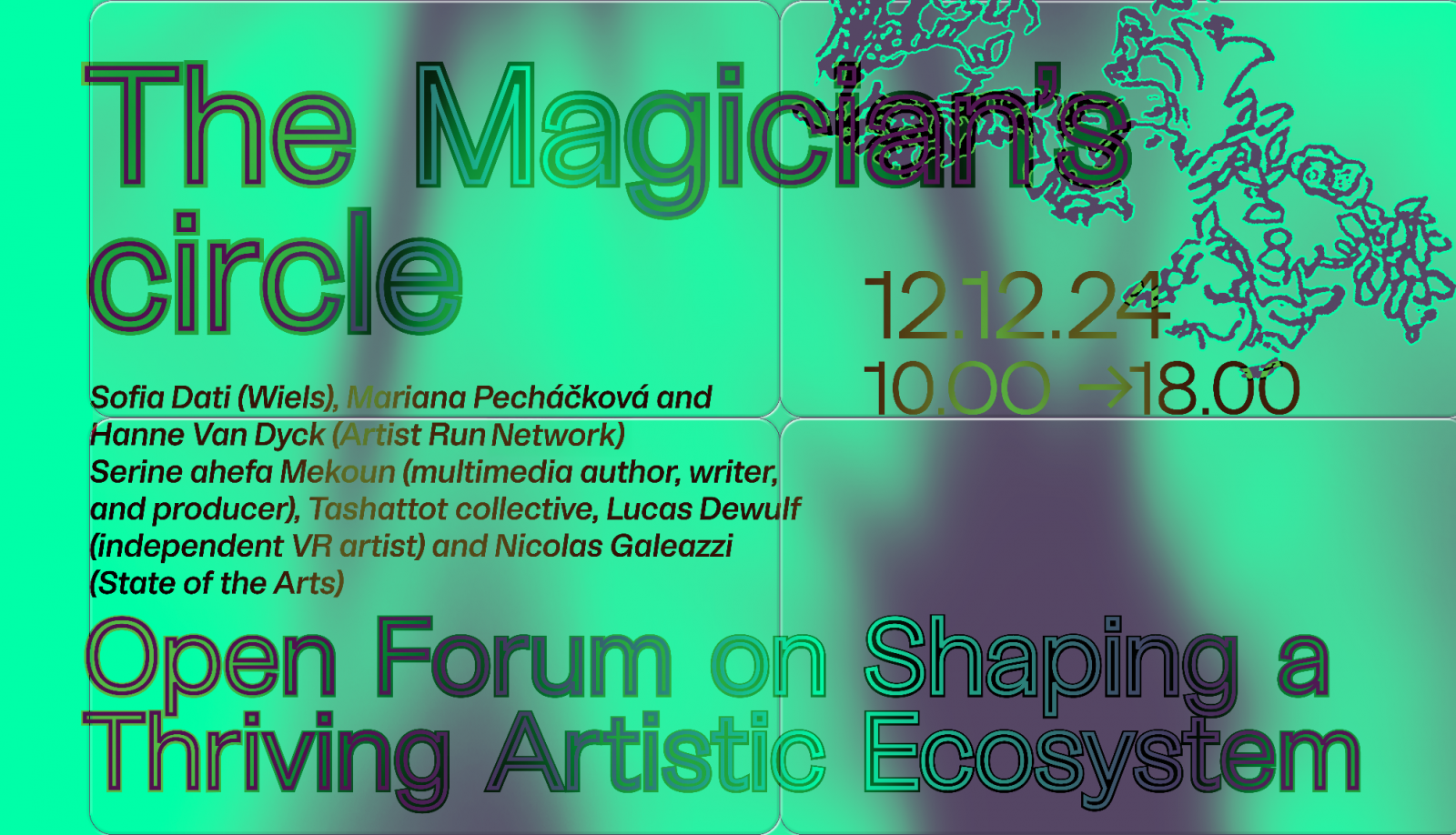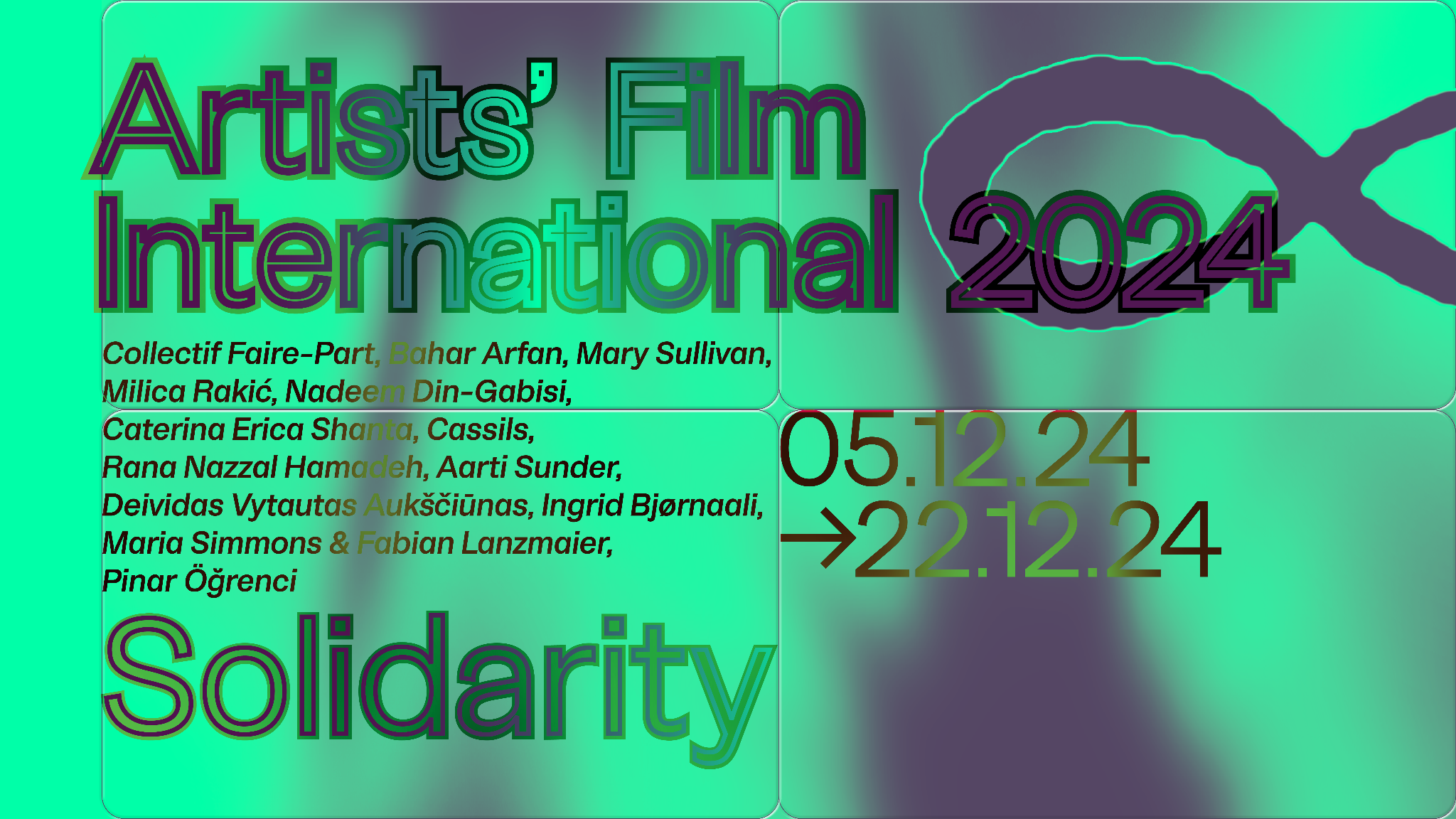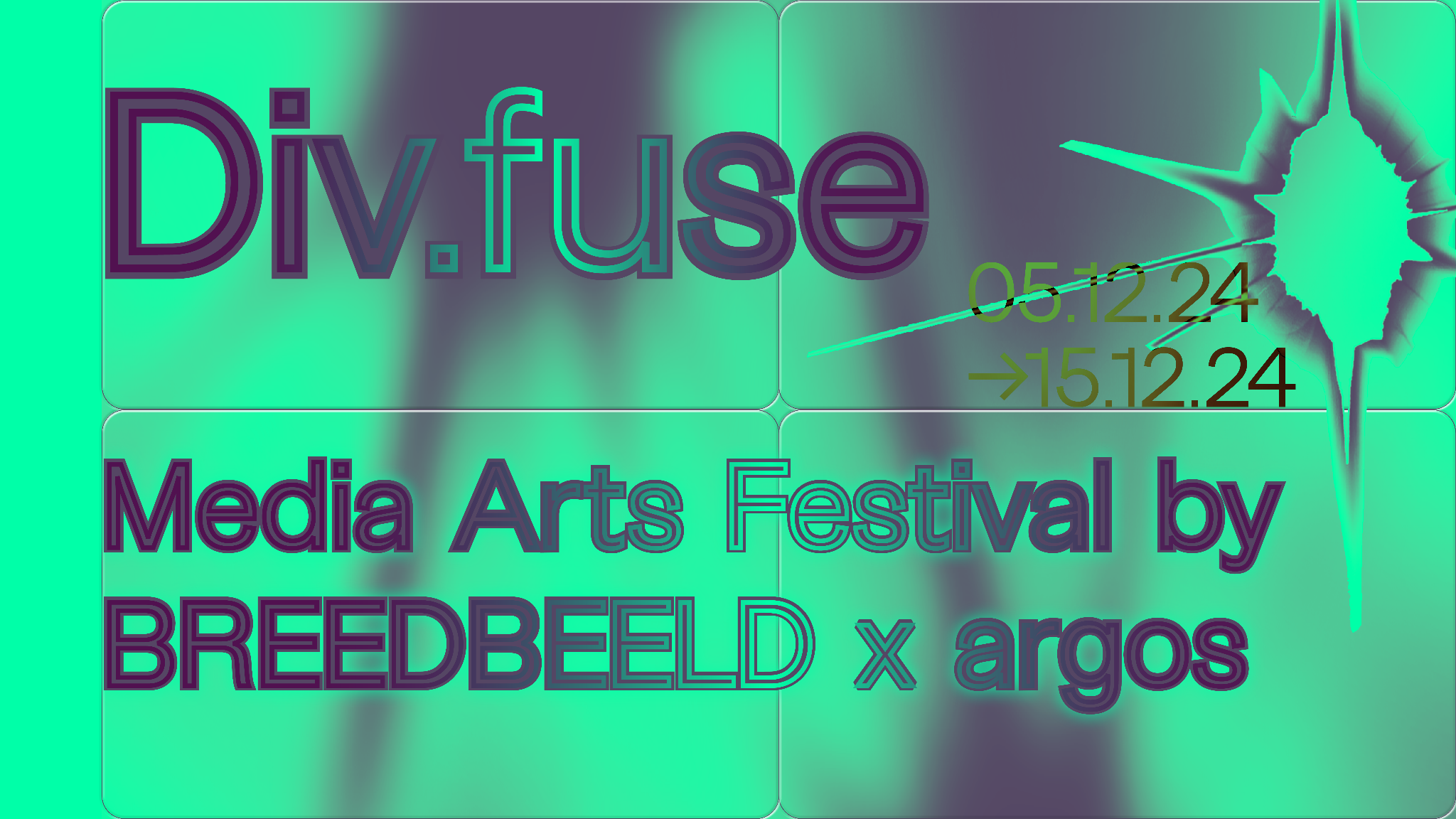The Magician’s Circle : Open Forum on Shaping a Thriving Artistic Ecosystem

This open forum explores some of the main concerns that (audiovisual) artists face today, such as visibility, distribution, self-organisation and self-production, support from the sector, residencies, new technologies such as VR and more.
After mapping out the challenges and opportunities, we’ll look at the role of institutions in supporting artists. Some of the questions of this forum include: How can we provide spaces of rebellion against gatekeeping? How do institutions avoid gatekeeping? What is the responsibility of institutions towards the artists? How can institutions make space for artists without using them? How can institutions and artists collaboratively build trust?
With Sofia Dati (Wiels), Mariana Pecháčková and Hanne Van Dyck (Brussels Artist-Run Network), Serine ahefa Mekoun (independent multimedia author, writer, and producer), Tashattot collective, Lucas Dewulf (independent VR artist) and Nicolas Galeazzi (State of the Arts).
Schedule
10h00 Doors
10h30 Open Forum
12h00 - 12h15 Break with coffee and tea
12h30 - 13h30 Q&A with the audience
13h30 - 14h30 Soup provided by Het Anker
14h30 - 15h00 Literary intervention: Islands of Kinship: A Collective Manual for Sustainable and inclusive Art institutions & FAIR Kin Arts Almanac
15h00 - 16h00 Roundtable discussions
16h00 - 17h00 Collective sharing moment
17h00 Network drink
About the participants
Sofia Dati is a curator at WIELS (Brussels). She was previously visual and audiovisual arts programmer at Beursschouwburg (Brussels) where she curated exhibitions and film programs with Ève Gabriel Chabanon, Sina Hensel, Hoda Siahtiri, Black(s) to the Future, Eden Tinto Collins, Filipa César, Maxime Jean-Baptiste and Onyeka Igwe, among others. From 2019 to 2021, as part of the curatorial team in WIELS, she worked on exhibitions, discursive programs and publications with artists Thao Nguyen Phan, Gabriel Kuri, and the large array of voices who shaped Risquons-Tout into a joint venture exploring ‘Risk, Unpredictability and Transgression’. She is also involved in collective curatorial processes with Black Archive and Kinostories. Sofia studied Literature at La Sorbonne Nouvelle Paris 3, Cultural Studies at KU Leuven and Curatorial Studies at the Fine Arts Academy in Rome. Her practice is rooted in writing and translation. She worked with the Christopher Okigbo Foundation on Christiane Fioupou’s French translation of the collection of poems Labyrinths (Gallimard, 2021); and is co-editor of Alexis Blake’s monograph Allegory of the Painted Woman (Archive Books, forthcoming). Moreover, she has published articles in magazines such as Po&sie, Arshake and Conceptual Fine Arts.
Mariana Pecháčková is an independent cultural worker
and curator from Prague, Czechia, currently based in Brussels. Her
practice is mostly focused on exploring common values in different
artist-run scenes and creating connections between Prague and Brussels.
Hanne Van Dyck
is a multidisciplinary artist often working on interdisciplinary and
cross-cultural collaborations, and is involved in several
artist-for-artist communities. Her training as a coach and facilitator
helps encourage community engagement.
Both Mariana and Hanne are part
of the core-team of Brussels Artist-Run Network that connects
independent initiatives, artists and art workers in Brussels through
advocacy, knowledge-sharing, and community building. Founded in 2020, it
promotes connection among over 100 artist-run initiatives,
strengthening the city’s vibrant independent art scene. The network
organizes events, provides resources, and fosters sustainable practices
to support artist-led spaces and artists.
Serine ahefa Mekoun is an independent multimedia author, writer, and producer based in Brussels, working between Belgium and West Africa. Her practice explores the ethics of representation, knowledge transmission, and the sociopolitical dimensions of culture, particularly through documenting creative ecosystems in Africa, the Diaspora, and the Global South. Using sound, images, writing, and journalistic inquiry, she creates spaces for alternative futures to emerge, reflecting on how these communities activate social change in postcolonial and digital contexts. As a mentor at Sociaal Fonds Podiumkunsten, Serine also nurtures emerging artists in the development of their artistic trajectories, while simultaniously working on her first hybrid documentary.
Tashattot (Arabic for dispersion) is an art collective based in Belgium dedicated to supporting visual artists, musicians, filmmakers and cultural practitioners at large, originally from the SWANA region and currently “dispersed” in Europe. The collective aims at creating opportunities, collaborations, commissions and securing funding for these expatriate artists.
Lucas Dewulf (Nearly Norman) is an artist and curator exploring and creating immersive realities. He is developing his artistic practice by creating experiences that place human connections at their center. Key to his work is using the affordances of digital technologies to explore the physical world and to question our analog nature within virtual space.
Nicolas Galeazzi is a freelance artistic researcher, curator, teacher, and coach for productive misunderstanding. For about ten years, he co-curated the postgraduate platform for artistic research practices a.pass in Brussels. He founded the transformative coaching platform MISE-EN-DISCOURSE, co-founded the performance collective I AM A PERMANENT MEMBER and is a member of the Brussels-based artist movement STATE OF THE ARTS (SOTA). As such, he also initiated and co-edited the Fair Arts Almanacs 2019, and was part of the core team of the FAIR Kin Arts Almanac 2023. Galeazzi uses performance as an act of research. His practice focuses on reinventing the wheel of pedagogy, epistemology, alternative economics, and ecology – things that perform our lives. Through curating situations for debating, coaching teams and collectives with dramaturgic support, as well as bookmaking and performance, he engages in subtle transformations. Initially trained for theatre, he crosses over to diverse positions in performance art, installation, publishing and artistic research, which provokes a constant search for the redistributions of responsibilities. That said, any ‘commons’ might be his art form.


